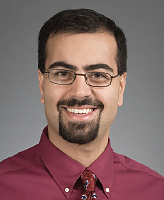Residents Bring Unique Perspective to Key Issues in Psychiatry

As I end my Trustee year, one of my last tasks is to help mentor and prepare the resident leaders who’ll take my place. However, administrative service, from your departmental committees to the APA Board, is intimidating. You’re often the lone resident in a room of senior attendings, many of whom are nationally recognized. Worse yet, you may need their goodwill to advance your career, but every word you say has the potential to ruffle feathers. In this column, I wanted to share two experiences from the past year, as a token of encouragement to all of you who may be considering professional service.
When I ran for APA office in 2010, few anticipated that this year’s Board would spend most of its time on two of the most significant decisions APA has made in the past decade. The first involved DSM-5. The Board reviewed, edited, and voted on each individual criterion set before it could enter the final manual. Numerous work groups and review committees had vetted the scientific, forensic, and public implications of the proposed changes, but it was up to Board members to integrate the differing perspectives, arbitrate disputes, and make the best final decision for the profession and our patients.
It was hard to imagine a rising PGY-4 matching wits with expert diagnosticians and researchers, but I found that I was needed in two important ways. First, because residents rotate so rapidly, I had recent experience in multiple practice settings and could visualize how new criteria might be used. Second, because I had not been on a DSM work group or review committee, I was a pair of “fresh eyes” able to notice things missed in previous discussions. And every one of my votes counted the same as any other Board member’s.
The second major decision is hiring a new medical director/CEO for APA. As you’ve read in these pages, Jay Scully is stepping down after 10 years. Every new executive brings change, and with the Board focused on the issue of recruiting and retaining younger members, the next CEO will have to rapidly make decisions about how APA relates to us. That will have serious implications for how money gets spent, which staff get hired, and how APA engages with electronic communication.
As I write this column, we have just finished a round of interviews with finalists for the medical director job, and those happened to come right after I’d done some reading on effective job interviewing. (I was interested in how we could improve our residency selection process and how I could get better personnel for the lab I hope to run someday.) In those interviews, I got to ask as many questions as any other Board member, and those more-senior colleagues listened to how the candidates responded to me, and some of those answers played a major role in our discussions.
The point from those two vignettes is that trainees have much we can contribute to boards and committees, even if we seem and feel inexperienced. We bring knowledge and experience to the table that is simply not accessible to our supervisors. Our generation has generally opted to be employed instead of practicing as independent physicians, and we understand the thinking and needs behind that decision. We have grown up with “mass customization” and entirely different ways of relating to other organizations (just think about how you interact with Amazon or Netflix, compared with how our parents interacted with a department store or cable company). We live daily with new ways of communicating and know what works to get our attention.
Above all, we have no experience with “the way it’s always been done,” and can thus offer a fresh perspective. With medical schools more open to “nontraditional” candidates, many of us have also lived through other careers, with ways of thinking and knowing that are not yet common in psychiatry. As much as our teachers and supervisors can be intimidating, they are also hungry for these insights, because they recognize that APA and other organizations need to learn and grow. If that weren’t enough, there are many others who, like me, have lived through the work of being a resident advocate and are always looking for people to mentor. The next time opportunity knocks, answer the door—you will be pleasantly surprised at what you can achieve and how welcome you will be! ■



